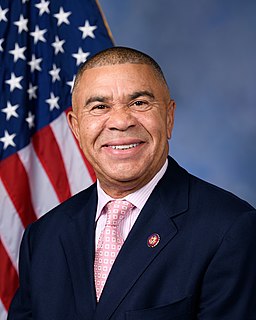A Quote by William Lacy Clay, Jr.
It is critical that low-income consumers have access to alternative products and services such as rent-to-own. It gives working-class families opportunities to obtain decent household items without incurring the burden of debt.
Related Quotes
Big banks churn out page after page of incomprehensible fine print to obscure the cost and risks of checking accounts, credit cards, mortgages and other financial products. The result is that consumers can't make direct product comparisons, markets aren't competitive, and costs are higher. If the playing field is leveled and the broken market fixed, a lot more money will stay in the pockets of millions of hard-working families. That's real stimulus - money to families, without increasing our national debt.
The current U.S. and Eurozone depression isn't because of China. It's because of domestic debt deflation. Commodity prices and consumer spending are falling, mainly because consumers have to pay most of their wages to the FIRE sector for rent or mortgage payments, student loans, bank and credit card debt, plus over 15 percent FICA wage withholding for Social Security and Medicare actually, to enable the government to cut taxes on the higher income brackets, as well income and sales taxes.






























